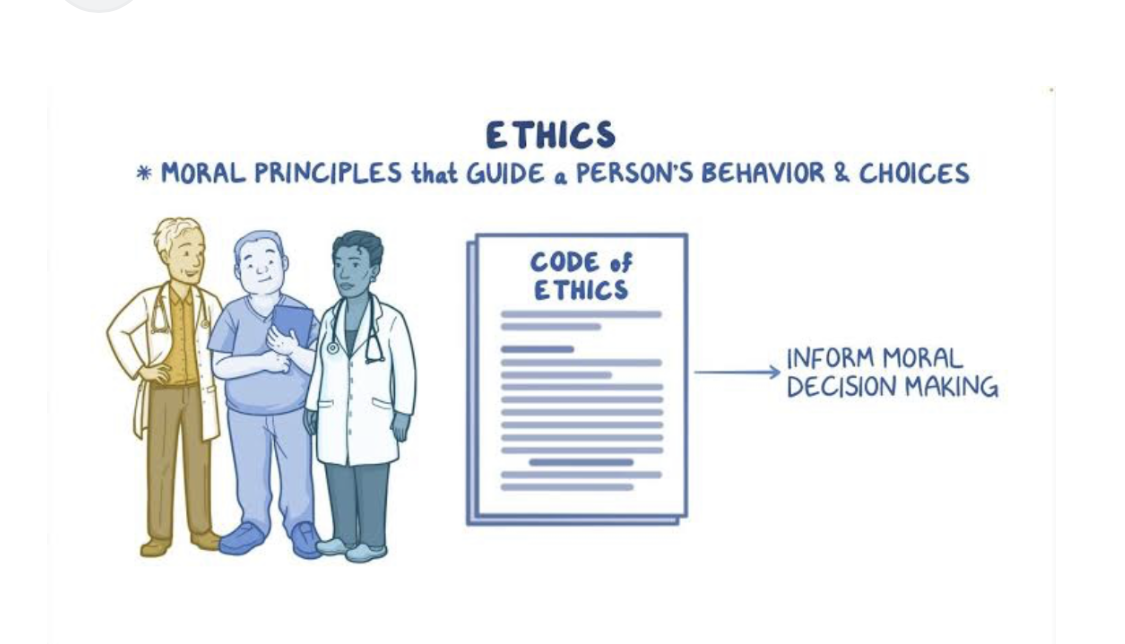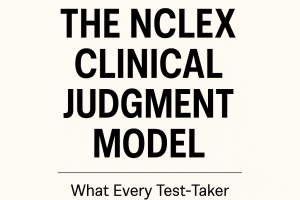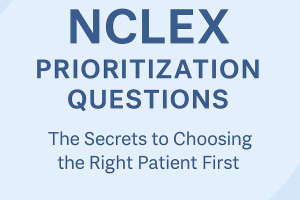ETHICAL AND LEGAL CONSIDERATIONS IN NURSING PRACTICE.

Nursing is a profession that operates at the intersection of compassion, science, and responsibility. Every nurse must navigate complex ethical and legal frameworks to ensure the delivery of safe, patient-centered care. Whether deciding how to advocate for patients, managing privacy concerns, or adhering to institutional policies, nurses face numerous challenges requiring critical thinking and professional judgment. This blog post will explore the key ethical principles and legal standards in nursing practice, along with practical tips for handling ethical dilemmas.
Ethical Principles in Nursing Practice
Ethics in nursing provides a moral foundation for decision-making, ensuring that nurses act in the best interest of their patients while maintaining professional integrity. The following ethical principles are essential in nursing:
• Autonomy: Patients have the right to make their own healthcare decisions. Nurses must respect these decisions, even when they conflict with personal beliefs. For example, a patient may decline a recommended treatment, and it is the nurse’s role to honor this choice while ensuring they are fully informed.
• Beneficence: Nurses must act in ways that promote the well-being of their patients, ensuring that care decisions prioritize health and safety.
• Nonmaleficence: Often summed up as “do no harm,” this principle requires nurses to avoid actions that could cause unnecessary harm or risk to their patients.
• Justice: All patients should receive fair and equitable care, regardless of their socioeconomic status, race, or personal circumstances. Nurses must be advocates for fairness in healthcare access and treatment.
• Fidelity: Nurses are responsible for maintaining trust by honoring commitments to patients, colleagues, and the profession.
These principles are outlined in nursing codes of ethics, such as the American Nurses Association (ANA) Code of Ethics, which serves as a guide for ethical practice.
Common Ethical Dilemmas in Nursing
Nurses often face situations where ethical principles conflict, requiring careful consideration and collaboration. Examples of common dilemmas include:
• End-of-life care decisions: Nurses may need to balance patient autonomy with beneficence when patients refuse life-sustaining treatments.
• Confidentiality concerns: Protecting patient information while adhering to legal reporting requirements for issues like abuse or communicable diseases.
• Resource allocation: Ensuring fair access to limited resources, such as ICU beds or medications, during healthcare crises.
• Cultural and personal values: Navigating conflicts between a patient’s cultural beliefs and evidence-based medical recommendations.
In such scenarios, nurses should collaborate with healthcare teams, utilize ethics committees, and engage in open communication to resolve dilemmas.
Legal Considerations in Nursing
Legal frameworks in nursing exist to protect patients and healthcare providers by setting standards for safe and ethical practice. Nurses must adhere to the following legal responsibilities:
• Scope of Practice: Defined by state or regional nursing boards, this outlines the duties and limitations of a nurse’s role. Acting outside this scope can result in legal consequences and endanger patient safety.
• Informed Consent: Nurses must ensure that patients understand proposed treatments, risks, and benefits. While obtaining consent is typically the physician’s responsibility, nurses play a critical role in verifying that patients are informed.
• Documentation: Accurate and timely documentation is vital for continuity of care and legal protection. Charting errors or omissions can lead to liability claims.
• Patient Confidentiality: Nurses are legally bound by regulations like the Health Insurance Portability and Accountability Act (HIPAA) to protect patient information. Breaching confidentiality can result in penalties and loss of licensure.
• Mandatory Reporting: Nurses are required to report specific situations, such as child abuse, elder abuse, or public health threats, even if it conflicts with patient confidentiality.
Tips for Navigating Ethical and Legal Challenges
• Stay informed: Regularly review institutional policies, state laws, and professional guidelines to stay updated on ethical and legal standards.
• Seek support: Utilize resources like ethics committees, supervisors, or legal consultants when faced with challenging situations.
• Communicate effectively: Open and respectful communication with patients, families, and colleagues can help resolve conflicts and build trust.
• Practice self-reflection: Regularly reflect on your values and biases to ensure they do not interfere with patient care.
NCLEX-Style Questions
1. A nurse is caring for a patient who has decided to stop chemotherapy, even though their family disagrees with the decision. What ethical principle is the nurse upholding by supporting the patient’s choice?
a. Justice
b. Autonomy
c. Beneficence
d. Nonmaleficence
Answer: b. Autonomy
2. A nurse notices that a colleague has documented a medication administration that was not completed. What is the nurse’s legal responsibility in this situation?
a. Confront the colleague directly and resolve the issue privately.
b. Inform the patient about the error.
c. Report the incident to the nurse manager or appropriate authority.
d. Correct the documentation without informing anyone.
Answer: c. Report the incident to the nurse manager or appropriate authority.
3. Which of the following scenarios demonstrates a breach of patient confidentiality?
a. Discussing patient care with the healthcare team during rounds.
b. Reporting suspected child abuse to the authorities.
c. Sharing patient information with a family member without the patient’s consent.
d. Documenting patient care accurately in the medical record.
Answer: c. Sharing patient information with a family member without the patient’s consent.
Conclusion
Ethical and legal considerations are integral to nursing practice, ensuring that care is provided safely, respectfully, and equitably. By adhering to ethical principles and legal standards, nurses can navigate complex challenges with confidence and professionalism. Understanding these foundations not only protects patients but also supports the integrity of the nursing profession. Nurses who remain committed to ethical and legal excellence play a crucial role in advancing healthcare quality and trust.






